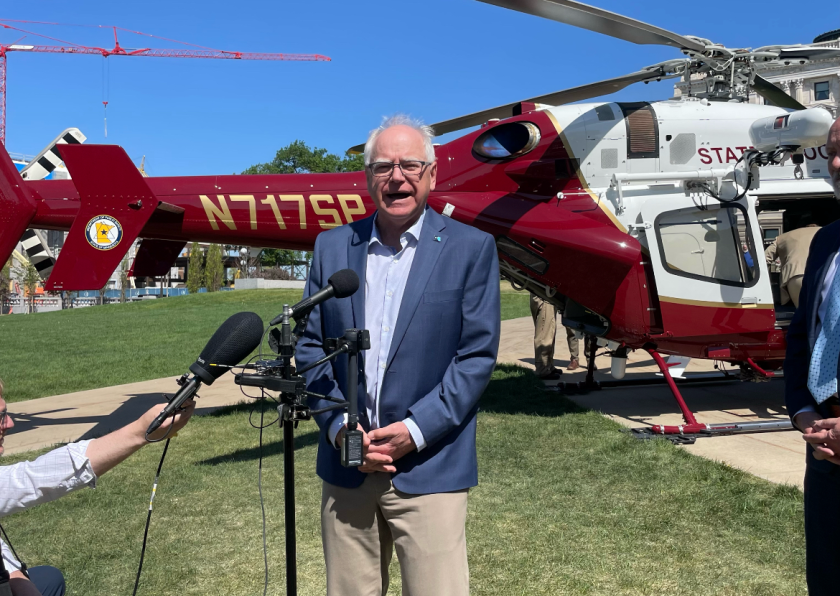ST. PAUL ŌĆö With five days left in the legislative session and no budget deal struck, Minnesota lawmakers are increasingly conceding that a special session this summer is likely.
Daily budget negotiations with Gov. Tim Walz and legislative leaders had yet to yield major updates as the Legislature approaches its May 19 deadline, but lawmakers from both chambers said Wednesday, May 14, that getting all the work done by next Monday is unlikely.
ADVERTISEMENT
Sen. Majority Leader Erin Murphy, DFL-St. Paul, said Wednesday while entering negotiations that a special session is ŌĆ£very, very likely, if not inevitable.ŌĆØ
ŌĆ£We need to do good work for the people of Minnesota, and I think ŌĆ” that is more important than finishing at midnight on the 19th of May ŌĆ” I think at this point, it is really difficult to get done and do the work in the way we need to,ŌĆØ Murphy said. ŌĆ£So yes, I think a special session is very, very likely, if not inevitable.ŌĆØ

Walz said Tuesday at an unrelated press conference, ŌĆ£WeŌĆÖre probably getting pretty close to that,ŌĆØ referencing 2019ŌĆÖs brief one-day special session. He emphasized Monday the same position as Murphy ŌĆö the importance of the ŌĆ£right productŌĆØ over when the product comes.
ŌĆ£I think thereŌĆÖs a real sense of optimism,ŌĆØ Walz said. ŌĆ£ThereŌĆÖs no doubt weŌĆÖre at the eleventh hour here. ItŌĆÖs time to get it done, but I think the biggest thing is to get the right product done.ŌĆØ
Speaker Emerita Melissa Hortman, DFL-Brooklyn Park, gave a one-word answer when asked whether a special session is inevitable: ŌĆ£Yes.ŌĆØ

Republican leaders have yet to voice their perceived likelihood of a special session. When Speaker of the House Lisa Demuth, R-Cold Spring, was asked Wednesday whether she feels there will be a special session, she said, ŌĆ£I feel weŌĆÖre going back into more conversation.ŌĆØ

The Minnesota Legislature isnŌĆÖt a stranger to special sessions. Since 2010, Minnesota has seen six special sessions to pass a state budget: 2021, 2019, 2017, 2015, 2011 and 2010, according to the A budget must be enacted by July 1; if not, the state could face a partial or full government shutdown.
ADVERTISEMENT
Walz must call a special session before it becomes official. He said Tuesday he thinks a special session would be more ŌĆ£perfunctoryŌĆØ if it happened.

ŌĆ£The thing is, when we rush the revisers and things, you might have a chance for some of these errors in drafting ŌĆ” I still think thereŌĆÖs a chance we can get this thing by the time, but I think as the hours go by, it becomes a little more difficult,ŌĆØ he said.
In the last decade, no special session has exceeded two weeks except 2021, when the special session stretched 24 days to ŌĆ£enact a balanced state budget and to address the GovernorŌĆÖs extension of the COVID-19 Peacetime Emergency,ŌĆØ according to the legislative reference library.
Minnesota taxpayers absorb the costs of special sessions, and while the exact amount depends on numerous factors, including whether individual lawmakers claim per diem, House Public Information Services estimated roughly in 2019.
In early April, released by the Senate and House revealed differences amounting to millions of dollars, particularly within cuts to E-12 education (early childhood through high school) and human services ŌĆö the two largest areas of state spending.
Walz on Monday morning said ŌĆ£the ideaŌĆØ is for the deal to come with resolutions to policy sticking points that leaders have spoken on ŌĆö such as or unemployment .
Following a February forecast from Minnesota Management and Budget showing the state could be facing a , lawmakers are proposing across-the-board cuts of up to $2 billion over the next two years to the stateŌĆÖs budget, which is expected to be
ADVERTISEMENT












